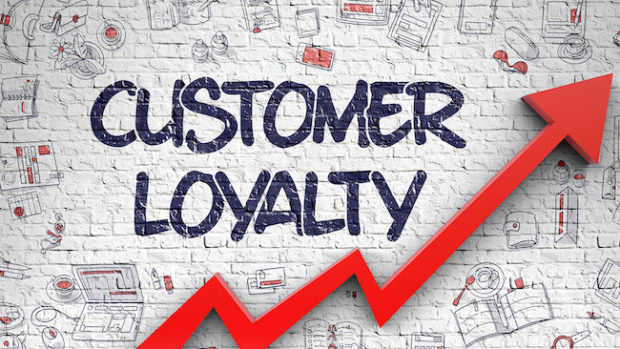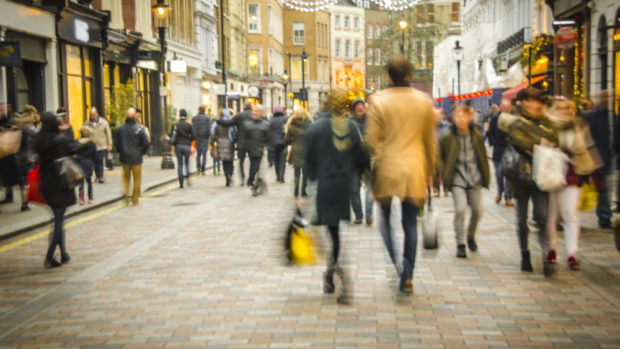99 per cent of the UK’s top 100 fashion retailers are failing to provide customers with a personalised post-checkout experience by neglecting to send tailored shipping communications to their customer, meaning the majority are missing out on a vital marketing opportunity, according to parcelLab’s ‘UK eCommerce Shipping Study 2020: Fashion Edition’.
The study, which analysed the checkout, shipping and returns of the top 100 fashion retailers in the UK, found that customer centricity ends soon after checkout: once a customer makes a purchase, they are left on their own to navigate the shipping and returns process for themselves. Another surprising finding from the study found that 93 per cent of the UK’s top 100 fashion retailers end communication with their customers immediately after they have checked out, meaning the majority are missing out on a prime stage in the customer journey.
“Retailers should be actively engaging with customers at this point through personalised, branded post-checkout communications,” said Katharine Biggs, content and marketing manager at parcelLab. “This is a prime stage in the customer journey to upsell products in delivery communications and currently only one retailer is doing this.”
Given that the opening rates of tracking emails is upwards of 60 per cent (compared to the industry average of around 10 per cent), it’s surprising to learn that 74 fashion retailers are actively missing out on capturing an engaged audience by allowing their logistics carrier to host parcel tracking. The majority (60 per cent) of customers are directed to the carrier’s Track & Trace page, while only 1 in 4 retailers direct customers to a branded Track & Trace page, albeit rarely hosted in the retailers’ domain.
Furthermore, none of the retailers allows the customer to choose their logistics provider – potentially adding unnecessary frustrations to the customer journey, especially for those customers who have a preferred delivery carrier.
Amongst the other key findings from the study, only 12 fashion retailers offer free shipping to their customers and another 65 only offer once a minimum order value (MoV) has been reached. Otherwise, the average amount is £4.46. Only 16 per cent offer time slot for delivery and only 31 per cent give customers an exact delivery date, with the vast majority (57 per cent) giving a predicted date range and 14 per cent giving no prediction at all. This could be problematic if a customer is ordering something and cannot be in all day to receive it.
On a positive note, UK retailers have been proven to keep their delivery promise almost all of the time. For 85 of 86 retailers who gave a prediction, the parcel arrived early and during the predicted delivery period. Only one parcel arrived later than promised. The final 14 retailers did not give a delivery prediction.
The returns process also highlights a difference in service mentality. The most popular option is in-store returns for 64 per cent of the fashion retailers, followed by Royal Mail returns – of which 51 per cent include a prepaid label in the box, while 11per cent expect customers to arrange the return themselves.
“Whilst the UK’s fashion retailers have invested heavily in the customer journey prior to checkout, customer centricity is forgotten as soon as the customer makes a purchase,” adds Biggs. “The retailers are focusing on getting the parcels to the customer as cheaply and efficiently as possible, potentially at the detriment to their relationships with customers.
“Fashion retailers are failing to utilise an untapped additional marketing channel post-checkout, meaning that they have a long way to go to meet the ‘Prime’ expectations of their customers. Those that are investing and taking back control of their communication post-checkout are the ones that will continue to stand out in the increasingly competitive and crowded fashion e-commerce marketplace.”
The research involved placing orders with all 100 online fashion shops, across luxury, premium, high street, e-tail, athleisure, lingerie & nightwear, shoes & accessories, as well as those with a multi-category offering, and then documented which services these retailers provide their customers before they checkout, and what happens afterwards.
The study highlighted three stand-out UK retailers when it comes to the checkout, shipping and returns process. JD Sports was awarded ‘Best Customer Experience’, Missguided for ‘Best Brand Experience’ and Hugo Boss for ‘Best Personalisation’.
“Retailers are no longer defined by their products, but instead they are differentiated by their customer journey. In order to succeed and outrank their competitors, retailers must therefore build strong customer loyalty to encourage customers to keep repurchasing,” concludes Biggs.








Share